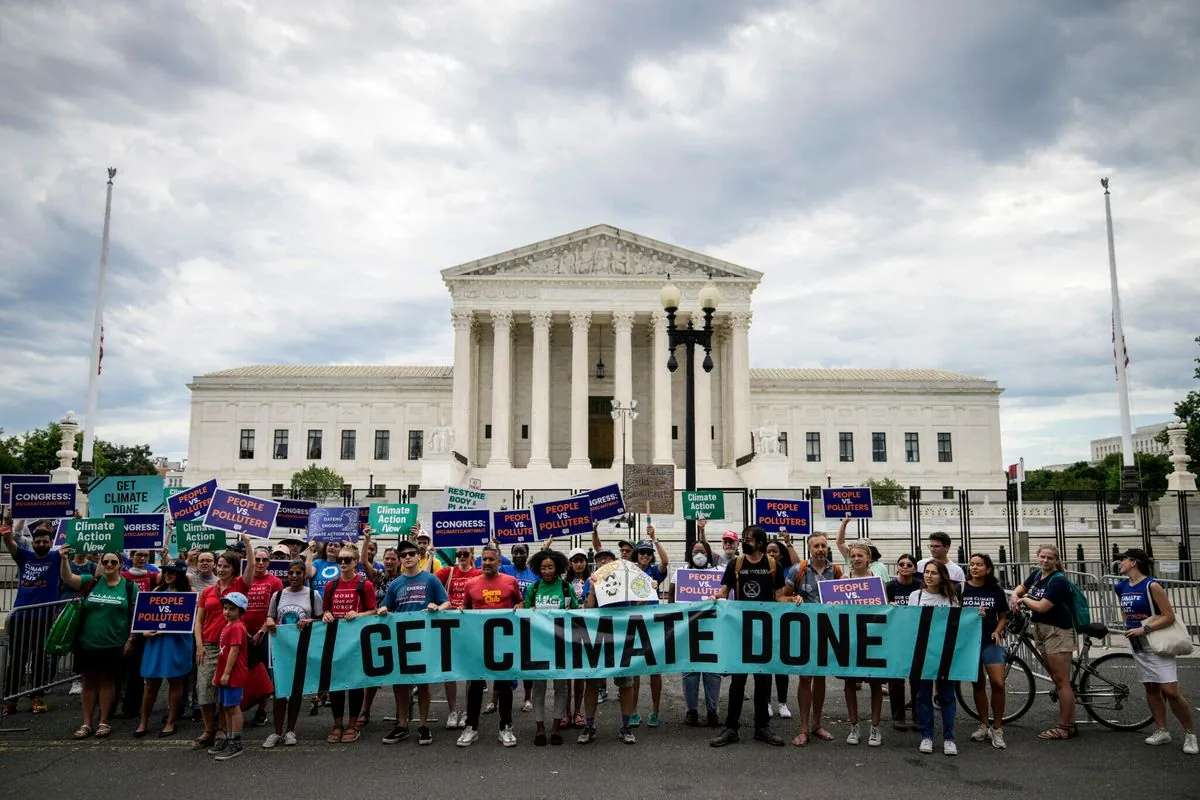The United States Supreme Court has opted not to impede the implementation of new environmental regulations introduced by the Biden administration. These rules, aimed at reducing mercury emissions from power plants and curbing methane release from oil and gas operations, represent a significant step in the administration's climate change mitigation efforts.
This decision comes as a setback for nearly two dozen Republican-led states and several power generators who sought to pause the mercury regulations, finalized in May 2024. The challengers argued that the rules, which power plants must comply with by July 2027, impose substantial costs with minimal direct health benefits.
Similarly, the court rejected a request from two dozen Republican-led states to halt the methane plan announced in December 2023. The Environmental Protection Agency (EPA) projects that these new methane regulations will lead to an 80% reduction in emissions between 2024 and 2038.
The EPA, established on December 2, 1970, by President Richard Nixon, has been at the forefront of environmental regulation in the United States. The agency estimates that power plants contribute to over a quarter of greenhouse gas emissions in the country, making them the second-largest source of planet-warming gases. These facilities also emit toxic substances such as mercury, lead, and arsenic.
"By developing these standards in a clear, transparent, inclusive manner, EPA is cutting pollution while ensuring that power companies can make smart investments and continue to deliver reliable electricity for all Americans."
The Biden administration has set ambitious goals, aiming to halve the nation's greenhouse gas output by 2030 and transition to a clean energy power grid by 2035. These objectives align with global efforts to combat climate change, as outlined in the Paris Agreement signed in 2015, which the U.S. rejoined in 2021 after a brief withdrawal.
However, opposition to these regulations remains strong. Critics argue that the plans could increase electricity production costs, destabilize the power grid, and lead to job losses. Jim Matheson, CEO of the National Rural Electric Cooperative Association, expressed concerns about the mercury regulations, stating they could force power plant closures.
In response, U.S. Solicitor General Elizabeth B. Prelogar countered these arguments, noting that 90% of coal-fired power plants have already demonstrated their ability to meet the new mercury standards without significant compliance costs or forced closures.
It's worth noting that the Supreme Court has a history of limiting the EPA's regulatory power. In recent years, the court has curbed the agency's ability to protect wetlands and regulate greenhouse gases. The 2022 ruling, in particular, established a precedent requiring clear congressional authorization for regulations with significant economic or political impact.
As the debate continues, it's crucial to remember that these regulations address serious environmental and health concerns. Mercury, for instance, is a neurotoxin that can cause developmental issues in children and affect the nervous system. Methane, often referred to as a "super pollutant," has 80 times the warming power of carbon dioxide in its first two decades in the atmosphere.
The EPA's efforts to regulate these emissions build upon a long history of environmental legislation in the United States, including the Clean Air Act of 1963 and its significant amendments in 1970 and 1990. As the nation grapples with the challenges of climate change and environmental protection, the outcome of these legal battles will play a crucial role in shaping America's energy future and its impact on global climate efforts.
